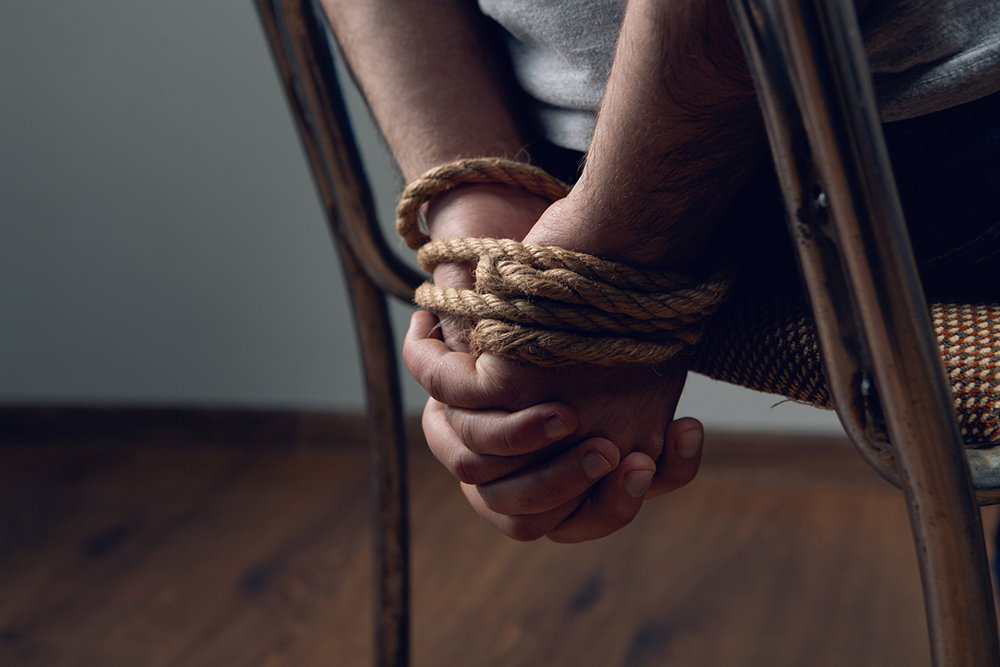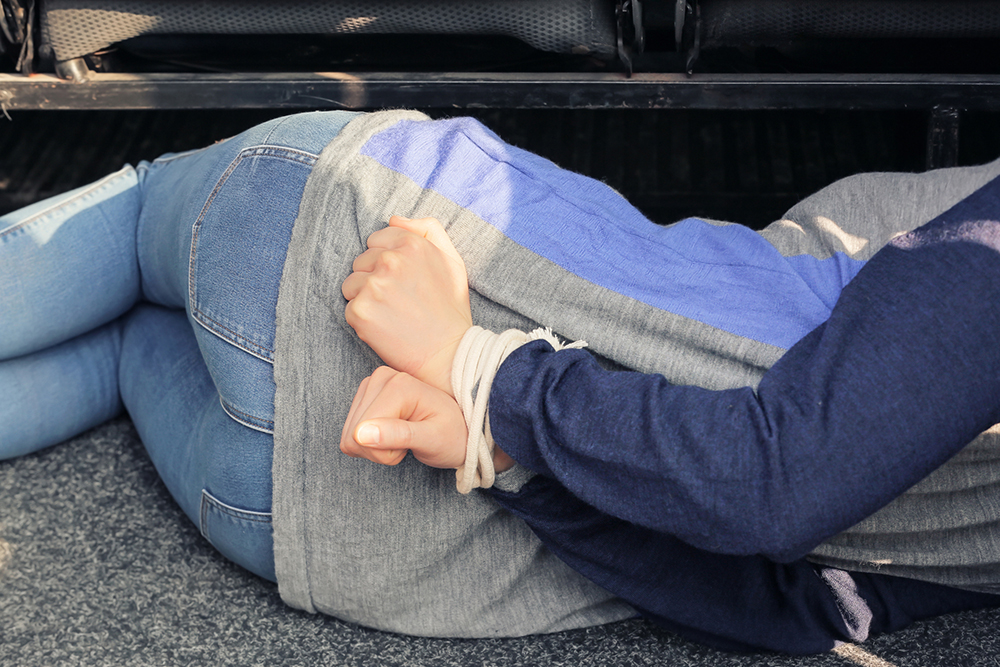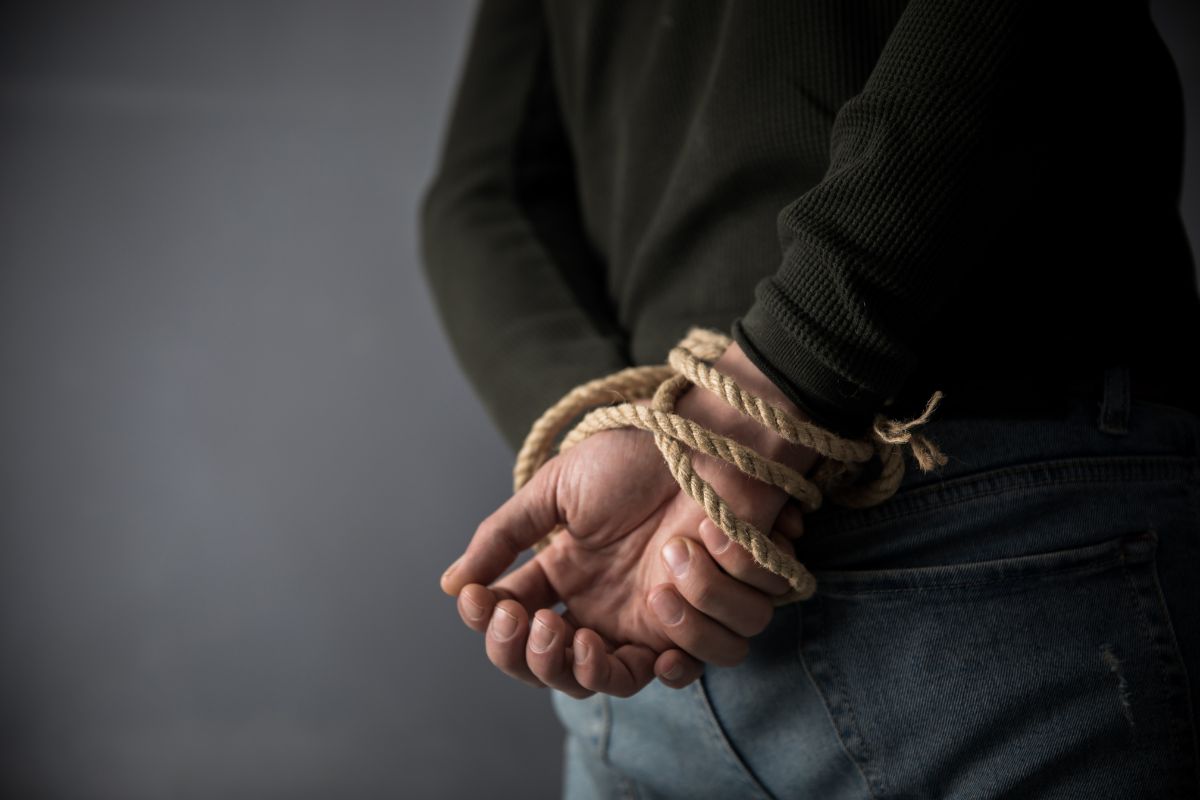If you are facing kidnapping charges, you need a criminal defence lawyer in Toronto to look at your case as soon as possible.
Kidnapping is taking a person against their will. What makes kidnapping different from false imprisonment or unlawful confinement, is that kidnapping involves moving the person to a secondary location. This makes it a more serious offence under the eyes of the law because it reduces the chances of rescue.
Kidnapping is strictly an indictable offence, meaning it is the most serious kind of offence under Canadian law.
Kidnapping is categorized as a continuing offence, meaning continues until the person is no longer unlawfully confined.
Being charged with kidnapping can be an incredibly distressing situation. It can have negative consequences for one’s professional and personal life. The maximum penalty for kidnapping under Canadian law is life in prison. There are also mandatory minimum sentences for kidnapping charges, for example, if a firearm is used during the offence, the Criminal Code of Canada imposes a minimum of five years in prison.
Strategic Criminal Defence is a top Google-rated criminal defence firm in Toronto, with over 500 5-star reviews. Our firm, and our experienced legal team, have defended clients in over 10,000 criminal cases. Leveraging our extensive network of lawyers and decades of experience, we craft defence strategies to help those accused of kidnapping beat the charge.
The lawyers at Strategic Criminal Defence are both highly experienced and dedicated to defending your rights and future in the face of these charges. Contact a Toronto kidnapping lawyer today by calling (647) 986-8077.

Key Takeaways
- Kidnapping is an indictable offence, which is the most serious offence under Canadian law
- The maximum potential punishment for kidnapping is life in prison
- If you’re granted bail, there may be conditions imposed on your release, such as:
- Avoiding interaction with the alleged victim.
- Stopping all communication (direct or indirect) with the other person.
- Maintaining a physical distance from the other person’s home, workplace, place of worship etc.
- Giving up possession of all weapons (ex. Firearms or knives).
- Abstaining from alcohol and non-prescription drugs.
- Abiding by a curfew
- Provide your current address to the court and notify the court of any address changes.
- There are various factors that may impact your bail conditions, such as:
- Suspected criminal activity
- Probability of appearing in court
- Previous criminal record
- Past drug and alcohol use
- Physical health
- Mental health status
- Employment status
- Housing situation
- Reputation in the community
- Even though kidnapping cases can be technical and complex, they can be successfully defended with the help of a Strategic Criminal Defence lawyer
How can a kidnapping lawyer in Toronto help?
Our lawyers can provide pre-charge legal advice, helping an accused understand their rights before any formal charges are filed. Our team can protect an accused from self-incrimination by ensuring they do not say things that could hurt their case when speaking with police. Our Strategic Criminal Defence lawyers help navigate all conversations with law enforcement about alleged kidnapping incidents.
Our lawyers gather evidence that supports an accused’s side of the story, including surveillance footage, phone records, or witness statements that might prove innocence. We can also retain expert witnesses like forensic specialists who can challenge the prosecution’s evidence.

Kidnapping Charges in the Criminal Code of Canada
According to section 279 of the Criminal Code:
Kidnapping
Every person commits an offence who kidnaps a person with intent
(a) to cause the person to be confined or imprisoned against the person’s will;
(b) to cause the person to be unlawfully sent or transported out of Canada against the person’s will; or
(c) to hold the person for ransom or to service against the person’s will.
Examples of Kidnapping Charges
Here are some examples of what could lead to kidnapping charges in Toronto:
- Holding someone against their will in a location
- Not letting someone leave a certain location (like a car or a house)
- Forcing someone to go somewhere by threatening them with a weapon
- Holding someone against their will for a ransom amount
Consequences of a Kidnapping Charge
The consequences for kidnapping can vary based on the circumstances of your case. As mentioned above, kidnapping is always an indictable offence, meaning it is a more serious crime that has more serious penalties.
The maximum penalty for kidnapping is life in prison. There are also mandatory minimum sentences, meaning that if certain actions are carried out, the judge is required to sentence you to a certain sentence. For example, if a firearm is used in the kidnapping, the minimum sentence is four years.
For a first offence involving the use of a firearm and the kidnapping has connections to a criminal organization, there is a minimum sentence of five years. This increases to seven years for subsequent offences, where a firearm is used, and the kidnapping is connected to a criminal organization. When the victim is under the age of 16, the minimum sentence is five years, unless the offender is a parent or guardian.
Kidnapping Charge Defences
While kidnapping is a serious charge, our lawyers can help determine which strategies might apply in your specific situation. These defences can challenge the evidence, question legal procedures, or explain your actions.
- Factual Innocence: This is when the facts and evidence do not support your involvement in the offence and is usually the strongest defence. This might involve challenging the identification process. To use this defence effectively, you will likely have to show evidence, like providing some sort of alibi to prove that you weren’t at the location of the crime when it was committed.
- Lack of Mens Rea: To convict you of kidnapping, the Crown has to prove you intended to confine or imprison the alleged victim. If there is reasonable doubt about your intent to do those things, it will weaken the Crown’s case against you.
- Mistaken Belief of Consent: If you genuinely (but mistakenly) believed the alleged victim consented to being moved, this can challenge the Crown’s case and potentially lead to a full defence.
- Violation of Constitutional Rights: The Canadian Charter of Rights and Freedoms states what your rights are before and after your arrest. If the police violated these rights, it could strengthen your defence.
Kidnapping Charge Investigation
The investigation usually begins when someone reports a person missing under suspicious circumstances.
The case will stay open until the police verify the missing person’s location and identity. The person reporting will be required to provide a full description of the missing person, which includes the last known time, date, and location they were seen. The police will also gather information regarding their physical appearance, health, and emotional state. A photograph will likely also be requested, although it may not always be shared.
Some additional information may also we gathered to help the investigation. This could potentially include email addresses, social media accounts, phone numbers, the make and type of phones, carrier/service providers, driver’s licence, passport location, credit card and banking information, contacts of significant people like friends or family, and places frequented.
If the missing person is located by the police, and they believe that you are the perpetrator, you will be arrested at the scene. If you are not present on scene, the police will issue a warrant for your arrest or attempt to locate you.
Investigators interview witnesses who might have seen something unusual and talk to family members and close friends to understand who might have wanted to harm the victim. They also check the victim’s phone records, social media, and financial information for clues about who took them or where they might be.
Bail Conditions for Kidnapping Charges
If you are granted bail, there may be certain conditions placed on your release. Conditions will vary on a case-by-case basis but could include avoiding any interaction with the alleged victim and abstaining from all direct/indirect communication with them. You may also be required to stay away from the alleged victim’s home, workplace, school, place of worship, and other frequented locations.
You may be required to surrender all weapons and firearms, including permits. You may also be asked to refrain from alcohol and non-prescription drugs, follow a curfew, display law-abiding behaviour, and give the court your current address and notify them of any address changes.
There are many factors that could impact what your bail conditions are, such as your likelihood to appear in court, suspected criminal activity, previous criminal record, past drug and alcohol use, physical and mental health statuses, employment status, housing situation, and reputation in the community.
Breaking any of these bail conditions can result in immediate return to jail and additional criminal charges.








